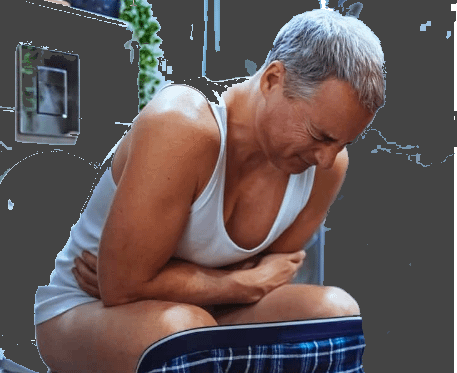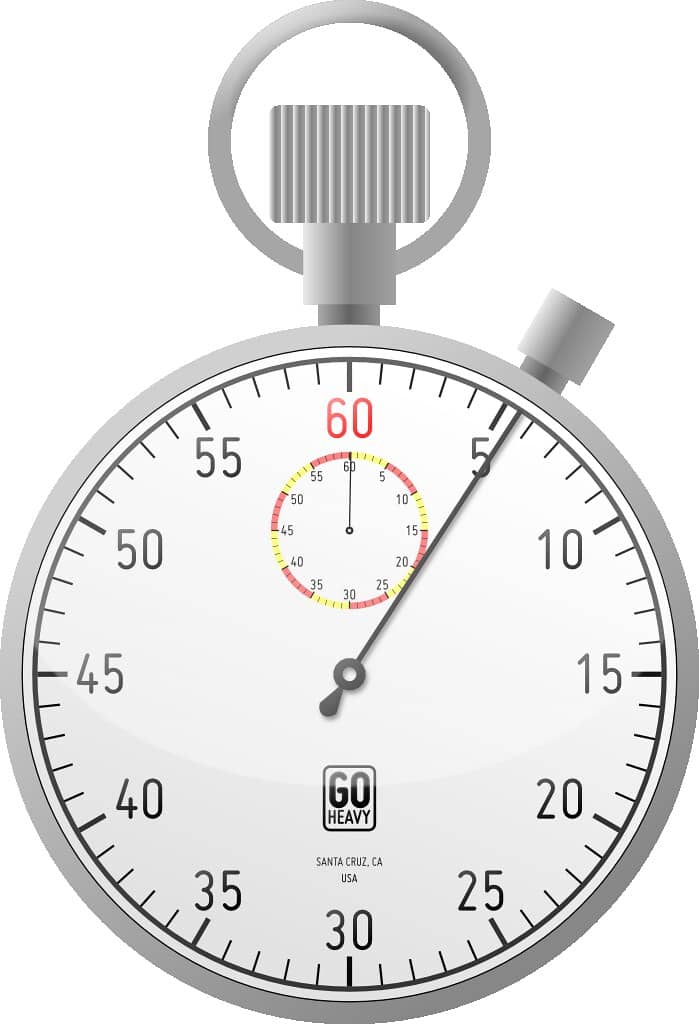why does diarrhea burn
1. Introduction: Understanding the Burning Sensation in Diarrhea
1. Introduction: Understanding the Burning Sensation in Diarrhea
Diarrhea is a common phenomenon that affects people of all ages. Many people may experience a burning sensation during diarrhea, which can cause discomfort and pain. This burning sensation is an indication of inflammation in the colon, rectum, or anus. The exact cause of this burning sensation can vary depending on several factors, such as the presence of stomach acids and digestive enzymes or the intake of spicy food. In this blog, we will explore the different factors that can lead to a burning sensation during diarrhea.
The blog will discuss the causes of the burning sensation in detail, from external irritants and anal fissures to symptoms of underlying conditions. It will also delve into contaminated water as a cause of burning diarrhea and the irritation of intestinal and anal linings. Furthermore, the blog will elaborate on spicy food as the main culprit for burning diarrhea and the different underlying issues that may cause burning poop.
In conclusion, this blog will aim to provide a comprehensive understanding of the burning sensation during diarrhea, its causes and possible remedies. It is important to note that if you experience severe diarrhea or other concerning symptoms, it is advisable to seek medical attention.
2. Caused by Stomach Acids and Digestive Enzymes
FAQ: Caused by Stomach Acids and Digestive Enzymes
1. What causes the burning sensation in diarrhea?
The burning sensation in diarrhea can be caused by the presence of stomach acids and digestive enzymes. When diarrhea speeds up the digestion process, foods often do not break down fully, so stomach acids and digestive enzymes remain in the diarrhea, which can hurt the tissues, causing a burning sensation.
2. Can low stomach acid or enzyme insufficiency cause diarrhea?
Yes, undigested food particles can cause diarrhea due to low stomach acid or a lack of digestive enzymes/enzyme insufficiency. This condition is more likely to affect the elderly.
3. How can gastrin levels affect diarrhea?
Increased gastrin causes the stomach to make far too much acid. The excess acid can lead to peptic ulcers and sometimes diarrhea. Gastrin is a hormone that stimulates the production of stomach acid.
4. How does bile acid malabsorption cause diarrhea?
When bile isn’t absorbed in the intestine, it causes chronic, watery diarrhea. Bile acid malabsorption is a problem in the intestines that can cause this condition.
5. Can malabsorption cause diarrhea?
Yes, malabsorption causes diarrhea, weight loss, and bulky, foul-smelling stools. This occurs due to the prevent adequate mixing of food with digestive enzymes and stomach acid.
In conclusion, the presence of stomach acids and digestive enzymes in diarrhea can cause a burning sensation. Other factors such as low stomach acid or enzyme insufficiency might also cause diarrhea. Increased levels of gastrin and bile acid malabsorption can cause this condition. Malabsorption, in general, can also cause diarrhea. It’s important to identify the underlying causes of diarrhea to treat it effectively.

3. Presence of Partially Undigested Food
3. Presence of Partially Undigested Food
Undigested food in stool can cause a burning sensation during diarrhea, as it means the food is passing through the digestive tract too quickly and not being properly digested. This can occur due to several reasons, including eating foods high in fiber or being under stress. In this FAQ section, we explore more about undigested food in stool.
– What are the common causes of undigested food in stool?
The most common cause of undigested food appearing in stool is fibrous foods. If you consume a high-fiber diet, your body may not be able to fully break down the fibers, leading to undigested particles in your stool. However, in some cases, undigested food can indicate medical conditions that interfere with proper digestion, such as malabsorption syndromes or enzyme deficiencies.
– Should I be concerned if I see undigested food in my stool?
If you occasionally see undigested food particles in your stool, it’s not necessarily a cause for concern. However, if it becomes a persistent issue, it’s best to consult a healthcare professional to identify any underlying medical conditions.
– How can I improve my digestion and avoid undigested food in stool?
Eating a well-balanced diet, exercising regularly, and staying hydrated can help improve digestion and prevent food from passing too quickly through the digestive tract. It’s also important to chew your food thoroughly and avoid overeating.
– Can undigested food in stool cause other health issues?
In most cases, undigested food in stool is harmless and only causes a temporary burning sensation during diarrhea. However, if it’s related to an underlying medical condition, it can cause other digestive issues such as abdominal pain, cramping, and diarrhea.
– Is diarrhea always accompanied by undigested food in stool?
Not always. While the presence of undigested food is common during diarrhea, it’s not always present. Other symptoms of diarrhea include loose, watery stools with increased frequency and urgency.
In summary, undigested food in stool can cause a burning sensation during diarrhea, but it’s not always a cause for concern. If you experience persistent symptoms or have other medical conditions, it’s best to consult your healthcare provider for proper diagnosis and treatment.
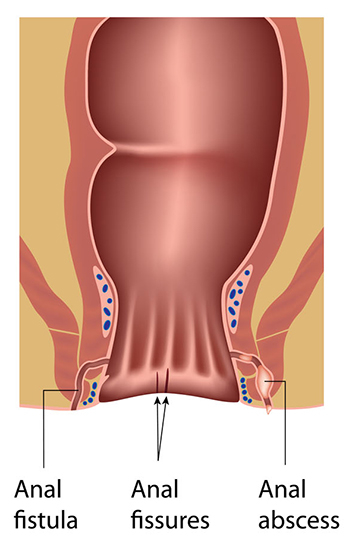
4. External Irritants and Anal Fissures
4. External Irritants and Anal Fissures
Q: How do external irritants and anal fissures cause a burning sensation during diarrhea?
A: External irritants, such as harsh toilet paper, scented wipes or soaps, and even tight clothing, can cause skin irritation around the anus, leading to a burning sensation during diarrhea. Anal fissures, on the other hand, are tiny tears in the skin around the anus and can cause severe pain and burning during bowel movements.
Q: How can external irritants and anal fissures be treated?
A: Avoiding external irritants and using sensitive skin products such as unscented soaps and toilet paper can help reduce skin irritation. For anal fissures, over-the-counter pain relief medications and topical creams can be used to ease the pain and promote healing. In some cases, surgery may be necessary to repair a severe anal fissure.
Q: Can diarrhea make an existing anal fissure worse?
A: Yes, episodes of diarrhea can further irritate an existing anal fissure, making it more painful and slower to heal. It is important to seek treatment for both diarrhea and anal fissures to avoid further complications.
Q: How can one prevent external irritants and anal fissures?
A: Practicing good hygiene habits, such as washing the anus with warm water after bowel movements, and avoiding tight clothing and harsh toilet paper can help prevent skin irritation. Eating a high-fiber diet and drinking plenty of water can also help prevent constipation and the straining that can cause anal fissures.
Q: Can anal fissures be a symptom of a more serious condition?
A: Yes, anal fissures can be a symptom of underlying conditions such as Crohn’s disease or ulcerative colitis. If anal fissures continue to occur or do not heal, it is important to seek medical attention to rule out any underlying conditions.
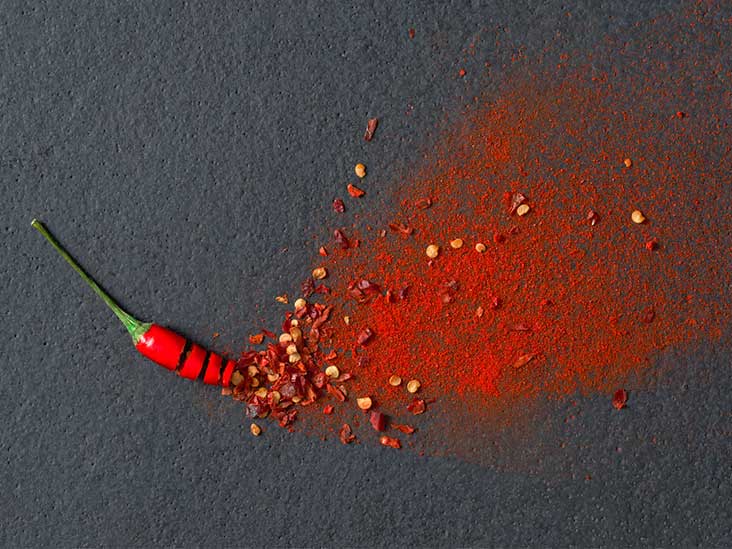
5. Diarrhea as a Symptom of Other Conditions
5. Diarrhea as a Symptom of Other Conditions
Diarrhea can be a symptom of various underlying conditions. In some cases, diarrhea can be accompanied by other symptoms that help identify the specific condition. Here are some frequently asked questions about diarrhea as a symptom of other conditions:
Q: What are some conditions that can cause diarrhea?
A: Some examples of conditions that can cause diarrhea include inflammatory bowel disease (IBD), irritable bowel syndrome (IBS), celiac disease, ulcerative colitis, and Crohn’s disease.
Q: How do I know if my diarrhea is caused by an underlying condition?
A: If you experience diarrhea regularly or if it persists for more than a few days, it’s important to consult a healthcare professional. They can perform diagnostic tests and identify any underlying conditions that may be causing your diarrhea.
Q: Can diarrhea be a symptom of food poisoning?
A: Yes, diarrhea can be a common symptom of food poisoning. Other symptoms may include nausea, vomiting, fever, and stomach pain.
Q: Can stress or anxiety cause diarrhea?
A: Yes, stress and anxiety can sometimes trigger diarrhea, especially if it’s chronic. The exact cause and mechanism behind this is not yet fully understood, but it’s thought to be related to the stress hormone cortisol.
Q: How can I manage diarrhea caused by an underlying condition?
A: Treatment for diarrhea caused by an underlying condition typically depends on the specific condition. In some cases, dietary changes, medication or other remedies may be recommended to manage symptoms.
Overall, it’s crucial to identify and manage any underlying conditions that may cause diarrhea. If you experience chronic or severe diarrhea, make an appointment with a healthcare professional to receive proper diagnosis and treatment.
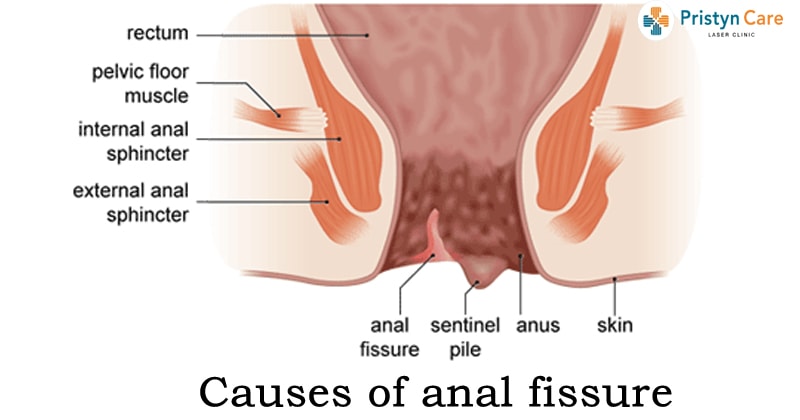
6. Anal Fissures: Tearing and Burning Sensation
6. Anal Fissures: Tearing and Burning Sensation
Anal fissures are a common cause of burning diarrhea. These small tears or cracks in the skin surrounding the anus can cause a sharp, shooting pain during bowel movements. In addition to causing discomfort, anal fissures may also lead to bleeding or itching.
1. What causes anal fissures?
Anal fissures can be caused by a variety of factors, including constipation, diarrhea, or passing large or hard stools. Other possible causes include chronic inflammation of the bowel, infections, or trauma to the anal area.
2. How is an anal fissure diagnosed?
To diagnose an anal fissure, a doctor will usually perform a physical exam of the affected area. They may also ask about any symptoms you are experiencing, such as pain, itching, or bleeding.
3. How are anal fissures treated?
Treatment for anal fissures will depend on the severity of the condition. In mild cases, over-the-counter creams or ointments may be sufficient to reduce pain and promote healing. In more severe cases, surgery may be necessary to repair the tear or remove any damaged tissue.
4. How can anal fissures be prevented?
To prevent anal fissures, it is important to maintain good bowel habits. This includes eating a healthy diet with plenty of fiber, drinking plenty of water, and avoiding constipation or diarrhea. It may also be helpful to avoid straining during bowel movements, and to use a stool softener if necessary.
5. What should I do if I suspect I have an anal fissure?
If you are experiencing symptoms of an anal fissure, it is important to speak with your doctor. They can perform a physical exam to determine the cause of your symptoms and recommend an appropriate course of treatment. In the meantime, you can try over-the-counter remedies such as creams or ointments to reduce pain and discomfort.

7. Contaminated Water as a Cause of Burning Diarrhea
7. Contaminated Water as a Cause of Burning Diarrhea
Contaminated water is a common cause of diarrhea, and it can also result in burning diarrhea. When water is contaminated with viruses or bacteria, it can lead to giardiasis – a condition that causes diarrhea along with other symptoms. Although burning diarrhea is not commonly associated with giardiasis, it can be one of the symptoms.
Q: How does contaminated water cause burning diarrhea?
A: Contaminated water can lead to giardiasis – a parasitic infection caused by a microscopic parasite known as Giardia intestinalis. This parasite can cause diarrhea, which can be accompanied by other symptoms such as cramps, gas, and bloating. The diarrhea caused by Giardiasis can sometimes result in a burning sensation.
Q: How do humans get infected with Giardia intestinalis?
A: People can become infected with Giardia intestinalis through the consumption of contaminated food and water or by coming into contact with feces of an infected person or animal. Drinking contaminated water is one of the most common ways to get infected with Giardia intestinalis.
Q: How can contaminated water be avoided?
A: It is important to always drink clean and safe water. One way of ensuring this is by boiling water for at least a minute before drinking it. Alternatively, purified or bottled water can also be used. As much as possible, avoid drinking water from open sources such as wells, streams or unclean water sources.
Q: Can Giardia intestinalis be treated?
A: Yes, Giardia intestinalis can be treated with specific medication prescribed by a doctor. However, it is important to note that while medication can treat the infection, it does not guarantee that an infected person will not get infected again.
Q: How long does Giardiasis last?
A: The duration of Giardiasis can vary from person to person. While some people experience the symptoms for a few days, others may have symptoms for several weeks. It is important to get diagnosed and treated by a medical professional to ensure proper recovery.
In summary, contaminated water can be a cause of burning diarrhea due to parasitic infections like Giardiasis. It is crucial to always ensure that water is clean and safe to drink to avoid such infections. Treatment of the underlying infection can help alleviate the symptoms and help with a speedy recovery.
:max_bytes(150000):strip_icc()/GettyImages-1146356375-fb76abed054b4abba4c1eba64e8cd7ec.jpg)
8. Irritation of Intestinal and Anal Linings
8. Irritation of Intestinal and Anal Linings in Burning Diarrhea
When a person experiences burning diarrhea, it can result from the irritation of the intestinal and anal linings. This irritation can cause pain and discomfort during bowel movements.
1. What causes the irritation of the intestinal and anal linings?
The irritation of the intestinal and anal linings can be caused by different factors, including the presence of stomach acids and digestive enzymes. In addition, undigested food particles may also contribute to irritation, particularly if they are rough in texture.
2. What are the symptoms of irritated intestinal and anal linings?
The symptoms of irritated intestinal and anal linings include burning and painful sensations during bowel movements. The affected areas may also be inflamed and swollen.
3. How is irritated intestinal and anal linings treated?
Treatment for irritated intestinal and anal linings will depend on the underlying cause of the irritation. For instance, if the burning diarrhea is caused by consuming spicy food, avoiding such food can help ease the symptoms. If the cause is due to bacterial infection, the person may require medication to treat the infection. In some cases, topical medications may be recommended to help soothe and heal the affected areas.
4. Can irritated intestinal and anal linings lead to other health problems?
If left untreated, irritated intestinal and anal linings can lead to complications such as anal fissures, which are small tears in the skin of the anus. Anal fissures can cause severe pain and discomfort and may require medical attention.
Overall, understanding the underlying causes of burning diarrhea can help identify the appropriate treatment for irritated intestinal and anal linings. It is essential to seek medical attention if symptoms persist or worsen.
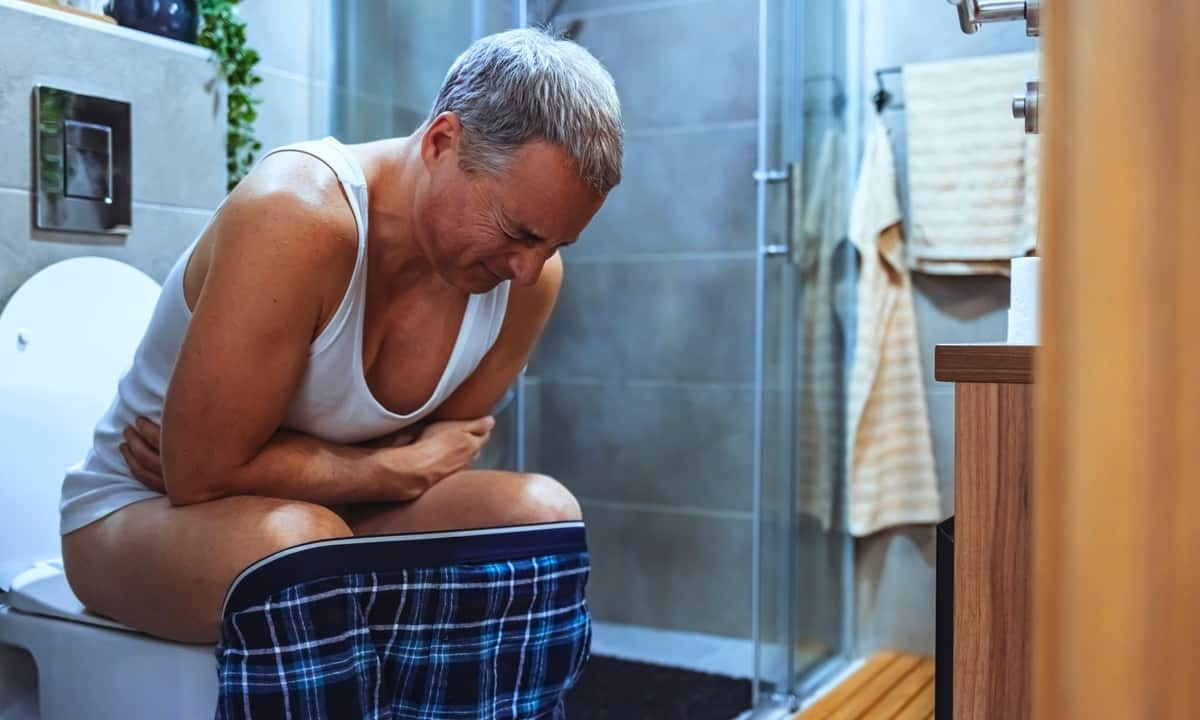
9. Spicy Food: Main Culprit for Burning Diarrhea
9. Spicy Food: Main Culprit for Burning Diarrhea
Spicy foods have long been known to cause gastrointestinal distress, and diarrhea is one of the most common symptoms. This is mainly due to the presence of capsaicin, a compound found in many hot peppers that can irritate the intestinal lining and cause a burning sensation.
1. How does capsaicin cause burning diarrhea?
Capsaicin triggers receptors in the gut that cause the muscles to contract, pushing food through the digestive tract more quickly. This can lead to diarrhea, and the capsaicin itself can irritate the intestinal lining, causing pain and discomfort.
2. Are all spicy foods equally likely to cause burning diarrhea?
No, not all spicy foods have the same amount of capsaicin. Some peppers, like habaneros and ghost peppers, have very high levels of capsaicin and are more likely to cause gastrointestinal distress. Mildly spicy foods like jalapenos or bell peppers are less likely to cause problems.
3. Can spicy food cause diarrhea even if it’s not too spicy?
Yes, even mildly spicy food can be a problem for some people. Spicy seasoning blends or sauces can contain multiple ingredients that can irritate the gut in different ways.
4. Is there anything that can be done to prevent burning diarrhea from spicy food?
Avoiding overly spicy foods can help prevent diarrhea, and taking an antacid before eating can help neutralize stomach acid. Additionally, eating small meals and drinking plenty of water can help improve digestion and reduce the risk of gastrointestinal distress.
5. Should people with sensitive stomachs avoid spicy food altogether?
Not necessarily. Some people with sensitive stomachs may be able to tolerate mildly spicy foods in moderation, while others may need to avoid them altogether. It’s important to listen to your body and adjust your diet accordingly. If you experience burning diarrhea after eating spicy food, it’s best to avoid it in the future.
:max_bytes(150000):strip_icc()/GettyImages-1184114562-cdec0b7c28ab42c08e4187bdfc07842b.jpg)
10. Other Underlying Issues That May Cause Burning Poop
10. Other Underlying Issues That May Cause Burning Poop
Apart from the common causes of burning diarrhea such as spicy food, food intolerance, and contaminated water, there are other underlying issues that may cause this discomfort. Here are some frequently asked questions to help you gain a better understanding of these issues.
1. Can stress and anxiety cause burning diarrhea?
Yes, stress and anxiety can lead to digestive issues such as diarrhea, abdominal pain, and even burning sensations. The digestive system and brain are interconnected, and when you’re feeling stressed or anxious, it can affect the contractions in your digestive tract.
2. Can certain medications cause burning diarrhea?
Yes, certain medications such as antibiotics, laxatives, and antacids can disrupt the balance of the gut microbiome, leading to diarrhea and a burning sensation. If you’re experiencing these symptoms after starting a new medication, it’s important to talk to your healthcare provider.
3. Can inflammatory bowel disease (IBD) cause burning diarrhea?
Yes, IBD is a chronic condition that causes inflammation in the digestive tract, leading to diarrhea, abdominal pain, and rectal bleeding. If you’re experiencing these symptoms regularly, it’s important to speak to your healthcare provider for proper diagnosis and treatment.
4. Can lactose intolerance cause burning diarrhea?
Yes, lactose intolerance is a condition where individuals are unable to digest lactose, the sugar found in milk and dairy products. Consuming lactose-containing foods can lead to abdominal pain, bloating, and burning diarrhea.
5. Can caffeine and alcohol cause burning diarrhea?
Yes, consuming excessive amounts of caffeine and alcohol can cause diarrhea with a burning sensation. Both caffeine and alcohol can disrupt the digestive system and cause irritation in the intestinal lining.
In conclusion, burning diarrhea can be caused by various factors such as spicy food, contaminated water, and external irritants. However, it’s important to be aware of the other underlying issues that may cause this discomfort to address the root cause and get proper treatment. Speak to a healthcare provider if you’re experiencing diarrhea with a burning sensation regularly.

